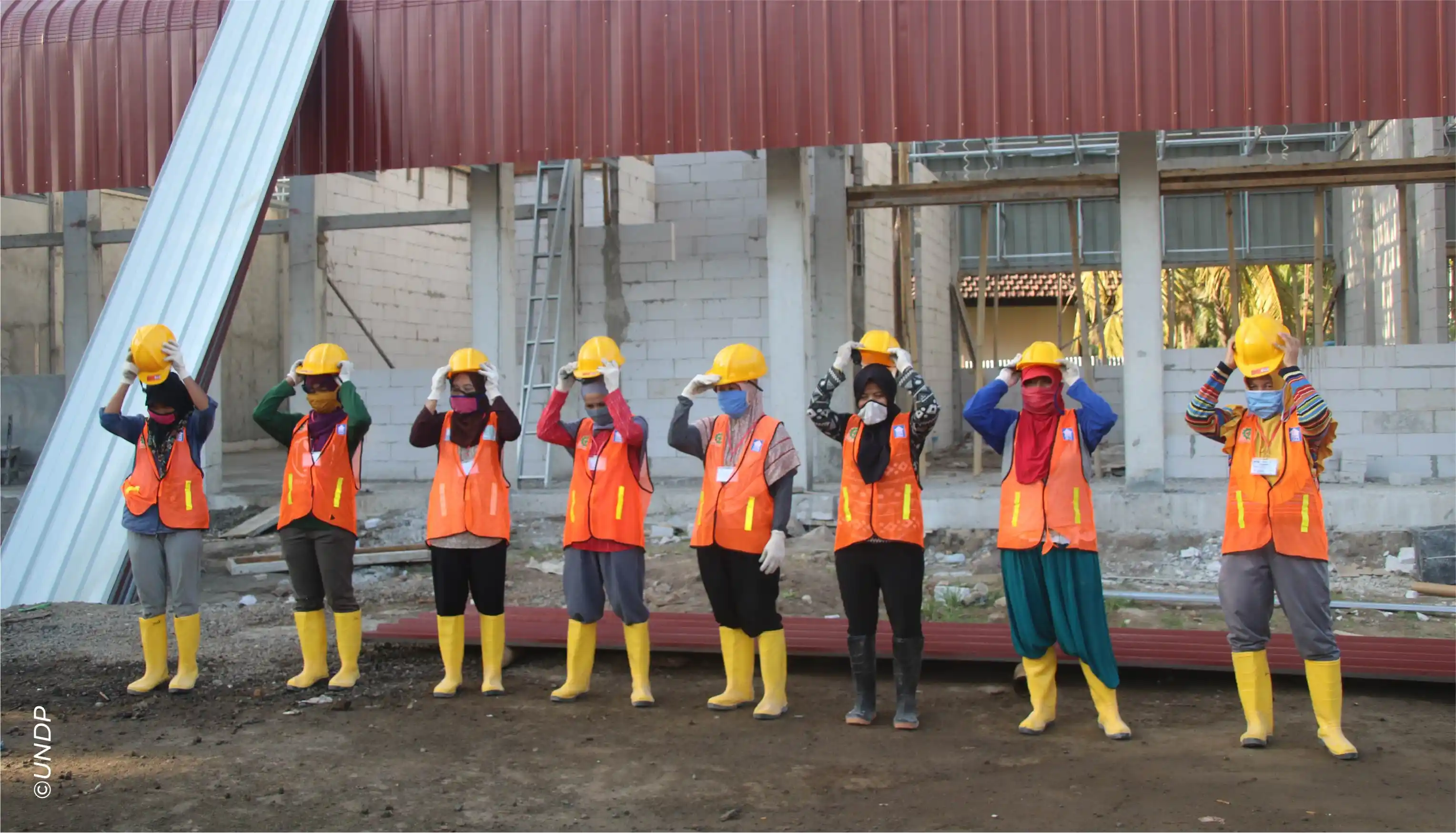United Nations In Indonesia
Country Results Report 2021
Training Skill, Development, and Public Educaction




 Industry 4.0 is renowned for automation, robotics, and concepts like machine learning. But it is people, rather than artificial intelligence, who are the heart of industrial transformation, and it is people who stand to either benefit or be left behind as it advances.
Industry 4.0 is renowned for automation, robotics, and concepts like machine learning. But it is people, rather than artificial intelligence, who are the heart of industrial transformation, and it is people who stand to either benefit or be left behind as it advances.
More than 24 million workers in Indonesia suffered from cuts to their hours and wages during the pandemic and the UN is engaged in assisting some of the most vulnerable. Some 2,120 people took part in a one to three-month gender-responsive capacity-building programme the UN ran in 2021 under the Multi-Partner Trust Fund’s Employment and Livelihood Project. The program, involving four4 UN agencies, boosted the capacity of women entrepreneurs to generate income through producing essential goods and services to reduce the impact of COVID-19 on their livelihoods. The project included 1094 women, 1315 people from rural areas, 842 youths, and 120 people living with HIV and members of key populations vulnerable to HIV, 167 people with disabilities, and 182 refugees. Of a total ofthose 2120 participants, 35% said that their incomes increased by the end of the project, while 66% reported being optimistic about receiving an income increase after 6 months.
To help ensure everyone has the capacity to benefit from Industry 4.0, the UN analysed the state of digital learning in Indonesia in 2021 through its “reimagining education” initiative, which included assessing digital skills among teachers and students. The analysis identified gaps and provided recommendations for improving the quality and inclusiveness of digital education in the context of COVID-19, with a focus on and making use of technology as an equaliser. A national symposium invited public and private sector partners to discuss the UN’s analysis in the context of reaching Indonesia’s most disadvantaged children with quality digital learning opportunities.
School teachers are among those best placed to impart the skills required for Indonesia’s 21st century economy. More than 6,500 teachers, 67% of them women, benefitted from an in-service 21st century life skills teacher training program delivered by the Ministry of Education, Culture Research, and Technology and supported by the UN in 2021. A further 250 teachers and school curriculum officers benefitted from training in teaching vocations aligned with the circular economy, such as sustainable tourism. Meanwhile, the UN continued its work on mainstreaming 21st Century skills through theIndonesia’s Pioneering Schools programme, which develops digitised teaching and learning materials to support Government efforts to build student skills in accordance with Pancasila, Indonesia’s founding philosophy. The project is expected to reach some 2,500 schools when fully implemented in mid-2022.
Industry 4.0’s emphasis on disruptive innovationon makes lifelong learning a necessity. To this end, the UN works with Indonesia’s Ministry of Manpower to improve the capacity of vocational training centres, or Balai Latihan Kerja (BLK). The UN conducted a four- week online training workshop for BLK managers on effective partnering with industry to address skills mismatches at the provincial and regional levels. In parallel, a graduate tracer study to be published in Q1 2022 captures the absorption rate of BLK graduates into the workforce and makes recommendations for improving training courses to better match industry needs.
To ensure students are equipped to meet the evolving demands of the 21st century workplace, the UN also developed two blended BLK training courses on motion graphics and computer networks for the Ministry of Manpower’s e-training platform. Another training program built the capacity of Ministry of Manpower staff to design policies and mechanisms for skills training and job matching in public employment. In parallel, the UN provided technical assistance to help enhance trade unions’ involvement in skills development and lifelong learning. Finally, the UN coordinated with representatives of various sectors in Indonesia to help develop a guide for industry on updating competency standards, to be released officially in March 2022.